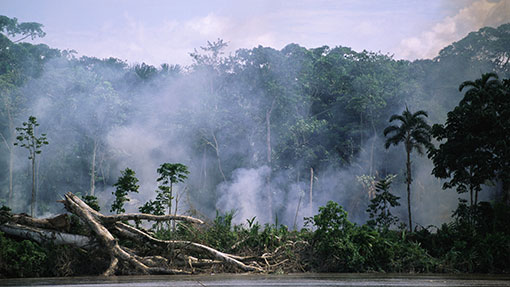Study calls for cut in red meat consumption

Researchers have called for a cut in red meat consumption to protect the environment and help meet future demand for food.
In a joint study, Cambridge and Aberdeen universities said that increased deforestation, fertiliser use and livestock methane emissions would cause greenhouse gas emissions from food production to rise by almost 80% by 2050.
The study published in the Journal of Nature Climate Change, added that by 2050 current trends in food production would increase fertiliser use by 45% over 2009 levels.
See also: CAP greening could make environment worse – report
It also warned that 10% of the world’s tropical forests would disappear within 35 years to rear cattle and grow grain for animal feed.
To combat the rise, the academics behind the report said people should eat no more than two 85g portions of red meat a week.
Instead they said people should switch to eating a portion a day of poultry and as many as five eggs a week.
University of Cambridge researcher, Bojana Bajzelj said: “The average efficiency of livestock converting plant feed to meat is less than 3%, and as we eat more meat, more arable cultivation is turned over to producing feedstock for animals that provide meat for humans.
“Agricultural practices are not necessarily at fault here – our choice of food is.”
Bojana Bajzelij, University of Cambridge
“The losses at each stage are large, and as humans globally eat more and more meat, conversion from plants to food becomes less and less efficient, driving agricultural expansion and releasing more greenhouse gases.”
But he said that he was not blaming farming practice.
“Agricultural practices are not necessarily at fault here – our choice of food is,” he said.
Cambridge co-author Keith Richards added that the research was not pro-vegetarian.
“This is not a radical vegetarian argument. It is imperative to find ways to achieve global food security without expanding crop or pasture land,” said Professor Richards.
“Managing the demand better, for example by focusing on health education, would bring double benefits – maintaining healthy populations, and greatly reducing critical pressures on the environment.”
“Food production is a main driver of biodiversity loss and a large contributor to climate change and pollution, so our food choices matter,” said Prof Richards.
Aberdeen University, co-author Pete Smith added: “Unless we make some serious changes in food consumption trends, we would have to completely decarbonise the energy and industry sectors to stay within emissions budgets that avoid dangerous climate change.
“That is practically impossible – so, as well as encouraging sustainable agriculture, we need to rethink what we eat.”
Read more news stories like this
